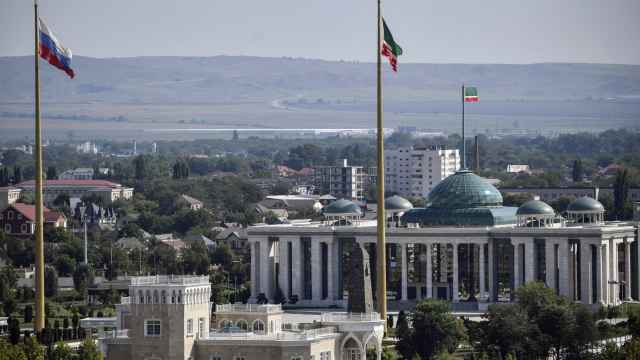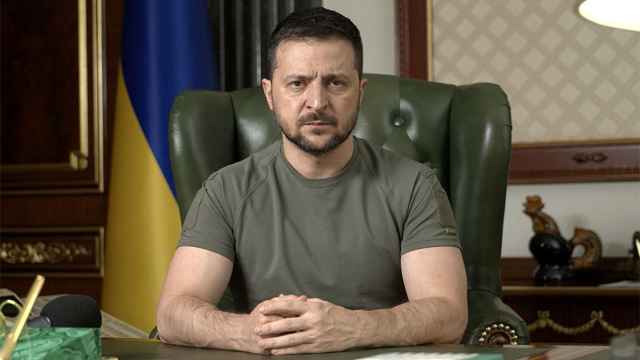Responding to efforts to formulate a concept of public-service broadcasting in Russia, legendary television personality Anatoly Lysenko quipped: "The authorities tossed the public a bone, and rather than chew on the bone members of the public began gnawing on one another."
President Dmitry Medvedev proposed creating a public broadcasting service in his address to the Federal Assembly in late December. The idea became part of a set of proposals aimed at introducing greater democracy to the country's political system. Medvedev called for a concept of public broadcasting to be placed on his desk by March 1.
Two working groups were formed to carry out that request. The first is led by Mikhail Fedotov, chairman of the Presidential Council on Human Rights. The second was formed by the Press and Communications Ministry and includes senior members of the ministry, the presidential administration, Channel One television and the All-Russia State Television and Radio Broadcasting Company.
No sooner had they set to work than it became clear just how difficult it is to create a public broadcasting service in Russia.
As leading television host and noted thinker Leonid Parfyonov complained at the protest rally on Bolotnaya Ploshchad on Feb. 4, the task of developing a concept for freeing television from state control was given to the presidential administration — that is, to the very same people who first made national television the lapdog of government in the 2000s.
Another leader of public opinion, Patriarch Kirill, was undoubtedly referring to the almost exclusively liberal membership of the Presidential Council on Human Rights when he said public television risks becoming a "mouthpiece for the minority that declares its demands more loudly than anyone else."
Russia is 20 years late in its efforts to create a public broadcasting system. Even in developed democracies, the digital revolution has thrown traditional broadcasting into a crisis. As a result, no traditional Western model will help us, says Lysenko who is a member of both working groups. He contends that dreaming up such a system from scratch in just two months would be a profanation.
I would add that Medvedev did not provide any vision of the mission for public television. He said only that it should not be dependent on the taxpayer's money, advertising revenues or big business. And then he directed television professionals to carry out his instructions. That is like telling generals to reform the army.
Does that mean we should give up on the idea of public broadcasting in Russia? Of course not. I think it is extremely important that the question be on the agenda. In our complex society, there is no better exercise in democracy than the practical task of creating a public broadcasting service.
Both parliamentary and radical opposition parties will demonstrate the degree of their maturity by their ability to force the government to fulfill its promise regarding public broadcasting, as well as by their success in contributing to the creation of a nonpoliticized, neutral and objective television venue. But if we hope to see a qualitative result, it will require more than two hurried months of work.
Alexei Pankin is the editor of WAN-IFRA-GIPP Magazine for publishing business professionals.
A Message from The Moscow Times:
Dear readers,
We are facing unprecedented challenges. Russia's Prosecutor General's Office has designated The Moscow Times as an "undesirable" organization, criminalizing our work and putting our staff at risk of prosecution. This follows our earlier unjust labeling as a "foreign agent."
These actions are direct attempts to silence independent journalism in Russia. The authorities claim our work "discredits the decisions of the Russian leadership." We see things differently: we strive to provide accurate, unbiased reporting on Russia.
We, the journalists of The Moscow Times, refuse to be silenced. But to continue our work, we need your help.
Your support, no matter how small, makes a world of difference. If you can, please support us monthly starting from just $2. It's quick to set up, and every contribution makes a significant impact.
By supporting The Moscow Times, you're defending open, independent journalism in the face of repression. Thank you for standing with us.
Remind me later.





